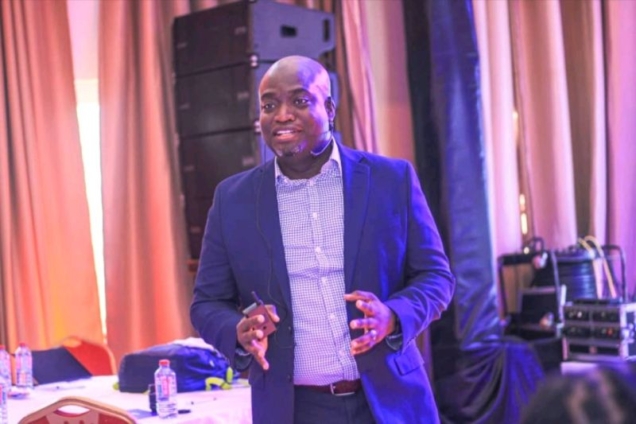The acrid scent of charred wood and burned fabric still hangs in the air at Kantamanto Market, the bustling heart of Accra’s secondhand clothing trade. Just days ago, a massive fire reduced two-thirds of the market to ashes, displacing thousands of traders and severing a vital artery of Ghana’s retail economy. The scene is an all-too-familiar one in Ghana, where open market fires have become a devastatingly common occurrence.
Since 2000, dozens of fires have swept through the country’s open markets, destroying livelihoods, upending families, and laying bare the fragility of the informal trade open markets.
While comprehensive data on the exact number of market fires since 2000 is limited, several notable incidents highlight the frequency and impact of these events:
- Kantamanto Market Fires: This major market in Accra has experienced multiple fires, including significant incidents in April 2011, May 2013, December 2020, and January 2025.
- Kotokoraba Market Fires: Located in Cape Coast, this market suffered major fires in 2002 and April 2010, resulting in extensive damage to stalls and goods.
- 2020 Market Fires: Several markets across Ghana were affected by fires in 2020, including Dagomba Line in Kumasi (February), Juaben Serwaa Market in Koforidua (July), Tarkwa Market (August), Dome Market in Accra (September), and Odornaa Market (November).
From Accra to Tamale, these markets form the backbone of Ghana’s economy, handling 90 percent of fast-moving consumer goods (FMCG) retail trade. Yet, they operate with minimal infrastructure, little insurance coverage, and few safeguards against disaster.
For the traders at Kantamanto, the fire has done more than just burn their goods. It has scorched their dreams. Many are small business owners operating on razor-thin margins. Most have no access to loans or insurance, and rebuilding their businesses feels like an impossible feat.
The fires also threaten the inclusiveness of Africa’s retail trade. Open markets are not just commercial spaces—they are democratic arenas where the playing field is leveled, and the art of haggling ensures competitive pricing. These markets are where the majority shop and sell, forming the cultural and economic pulse of as fires devastate these spaces, the system becomes less competitive. Traders with limited access to capital or insurance are forced out, leaving room for larger, better-resourced entities to dominate. Without intervention, Ghana’s retail ecosystem risks becoming less inclusive, eroding the cultural identity of the open marketplace.
“What is African retail without haggling?” asks Ayisha Ishaq, a market advocate in Accra. “When the market is gone, it’s not just the traders who lose. We all lose.”
Addressing this crisis requires more than firefighting efforts after the fact. It demands a fundamental rethinking of how markets operate.
1. Infrastructure Investments: Governments and local authorities must prioritize investments in fire-resistant materials, proper drainage systems, and designated safety zones.
2. Access to Capital: Microloans and insurance schemes tailored to the realities of small traders could help cushion the impact of future disasters.
3. Environmental Protections: Waste management systems should be integrated into market designs, ensuring that textile waste is handled sustainably.
4. Public-Private Partnerships: Collaborations between governments and private entities can fund the modernization of markets while preserving their essential character.
Kantamanto Market may one day rise from the ashes, as it has in the past. But without systemic changes, its traders will remain vulnerable to the next catastrophe. Africa’s open markets are more than just places of commerce; they are a testament to resilience, community, and ingenuity.
As the cleanup begins in Accra, the question looms: Will this be a turning point for Ghana’s retail trade, or just another chapter in a long history of neglect?
For the sake of traders like Ama and for the future of inclusive African commerce, one hopes it will be the former.
Latest Stories
-
Afenyo-Markin under fire for ‘strange elevation’ comment to Essikado MP ‘over’ Zanetor
21 minutes -
Abanga Yakubu refutes allegations of leading unauthorised anti-galamsey operations
38 minutes -
Minority, Majority MPs clash over credit for Ghana’s economic gains
1 hour -
2025 NPP Congress: Kufuor, Akufo-Addo to deliver virtual address to delegates
1 hour -
UG lifts ban on social gatherings amid improved COVID-19 situation
2 hours -
Cataract, glaucoma, and pterygium predominant in Ketu North Municipality
2 hours -
I’m not afraid of anyone in the NPP – Mustapha Gbande
2 hours -
Okada rider dies after alleged assault by galamsey taskforce at Amenam
2 hours -
Nkulenu Industries Ltd sign up for JoySports Invitational Tournament 2025
2 hours -
Andrew Adote deserves grand celebration – George Quaye
3 hours -
Ticks are taking over city parks – here’s how to avoid them
3 hours -
ECOWAS mourns Buhari, hails his contribution to democracy and integration
3 hours -
Akua Afriyie defied NPP orders; now she apologises over Ablekuma North re-run
3 hours -
Hitz FM rolls out new weekend line-up with youth-focused programming
3 hours -
GES urges students to report weapons in schools
4 hours

